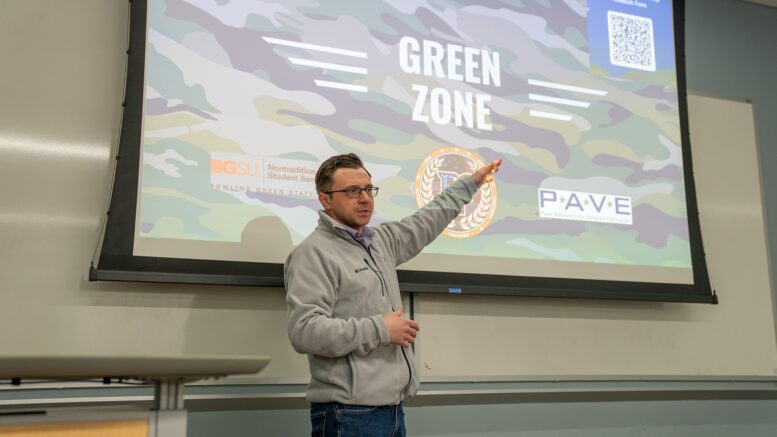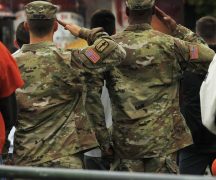As the No. 1 university in the Midwest for veterans and active military students, Bowling Green State University is committed to developing new ways to bolster support for military-connected students across campus.
Nontraditional and Military Student Services at BGSU (NTMSS), in collaboration with the BGSU Center for Faculty Excellence, recently held a Green Zone training to help faculty and staff members understand their roles in assisting military students throughout their educational journeys.
Green Zone training emphasizes building a knowledgeable and supportive network across BGSU to create a more military-friendly environment, said Geoff Roberts, military program coordinator at NTMSS, who led the training.
“The central focus of Green Zone training is to understand that every military person’s situation is unique, and it’s paramount they have allies throughout the BGSU community who know how to help and support them,” Roberts said.
BGSU is consistently recognized nationally for its comprehensive services, support and commitment to the success of veterans and active military students by Military Times’ Best for Vets rankings.
Recognized as a top military-friendly institution consecutively since 2013, the University’s personalized, student-centered approach and dedicated student veteran center, where students can build a supportive community, illustrates a steadfast commitment to supporting military students.
Through the Green Zone training, Roberts dispelled myths surrounding military subculture in the U.S. and recommended ways for faculty and staff to engage with veterans and active military students in and out of the classroom.
He also identified crucial campus and community resources to ensure faculty members and advisors can connect students to the proper resources based on their needs.
“My intent is for military students to know that regardless of who they encounter at BGSU, that person can recommend an organization or resource helpful to their particular situation,” Roberts said.
One of the biggest challenges for military students, Roberts said, is navigating activation orders and education benefits.
Calls to serve often occur at a moment’s notice and dates can fluctuate. There also can be delays in receiving education benefits from outside sources, which Roberts said can affect class registration or a student’s ability to purchase books, for example.
“By educating the learning community about the complexities involved with military service and education benefits, there will be more of an understanding of the students’ situations and a willingness to be flexible when those situations occur,” Roberts said.


